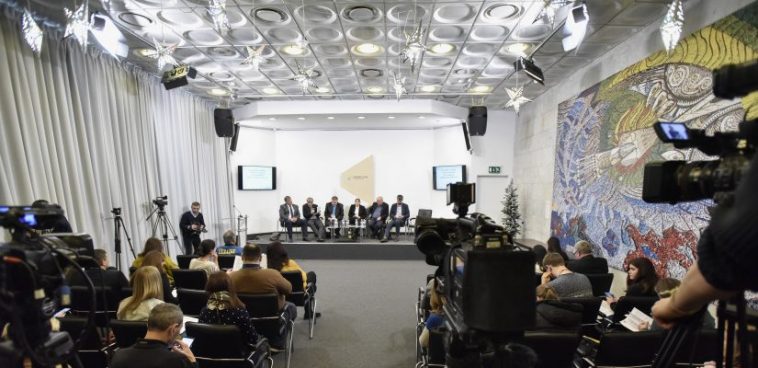On the occasion of the Day of Unification, many opinions from experts and public figures were heard about how consolidated is the country uniting and uniting the society, what challenges Ukraine is expecting in the near future and how to respond to them. In this article, we have summarized for you key press briefings from UKMC press briefings.
About language, identity and unity
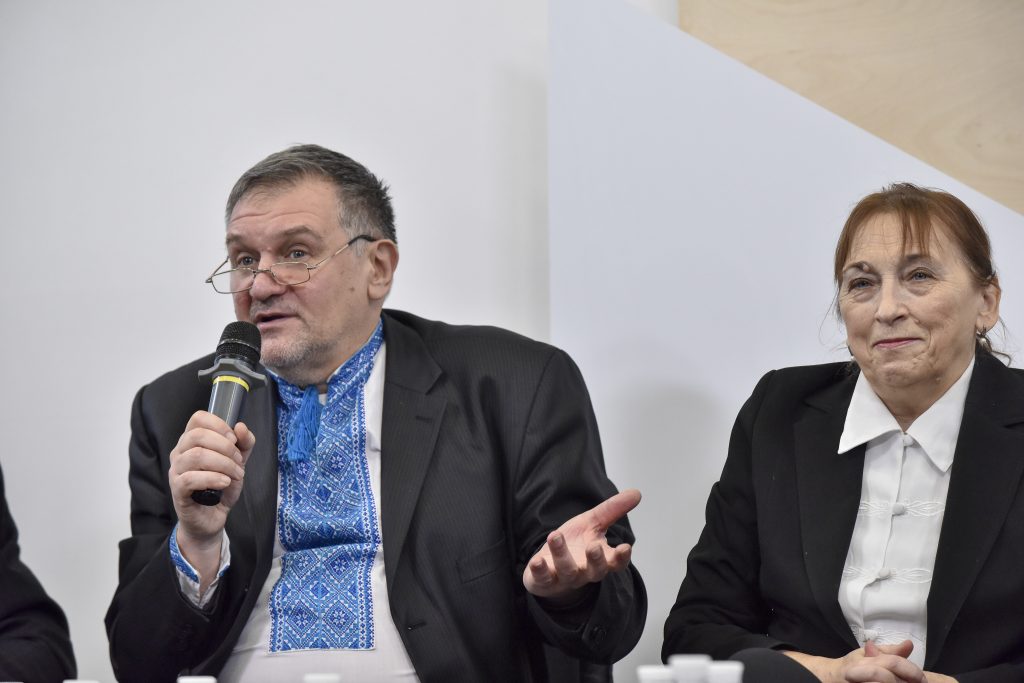
Alexey Garan, Scientific Director of Ilko Kucheriv Democratic Initiatives Foundation, Professor of Political Science at National University of Kyiv-Mohyla Academy:
“Recently, we have heard [from the authorities] symbolic appeals where, to me, the emphasis is not on what unites us – what is proclaimed, but on the contrary; that the streets should be named after scientists and astronauts – non-conflict figures. But if you look at the national heroes of most countries, they are all controversial figures.
Humanitarian and memory policies in Ukraine should be designed to make national heroes who, as a result of Soviet propaganda, become anti-heroes and perceived in the public mind as “conflicting” become non-conflict and respected figures in the state. As an example, Hrushevsky, Vinnychenko, and Petliura: in the late 1980s, they were still disconnected, and now they are in all textbooks and are no longer perceived as conflicting. “
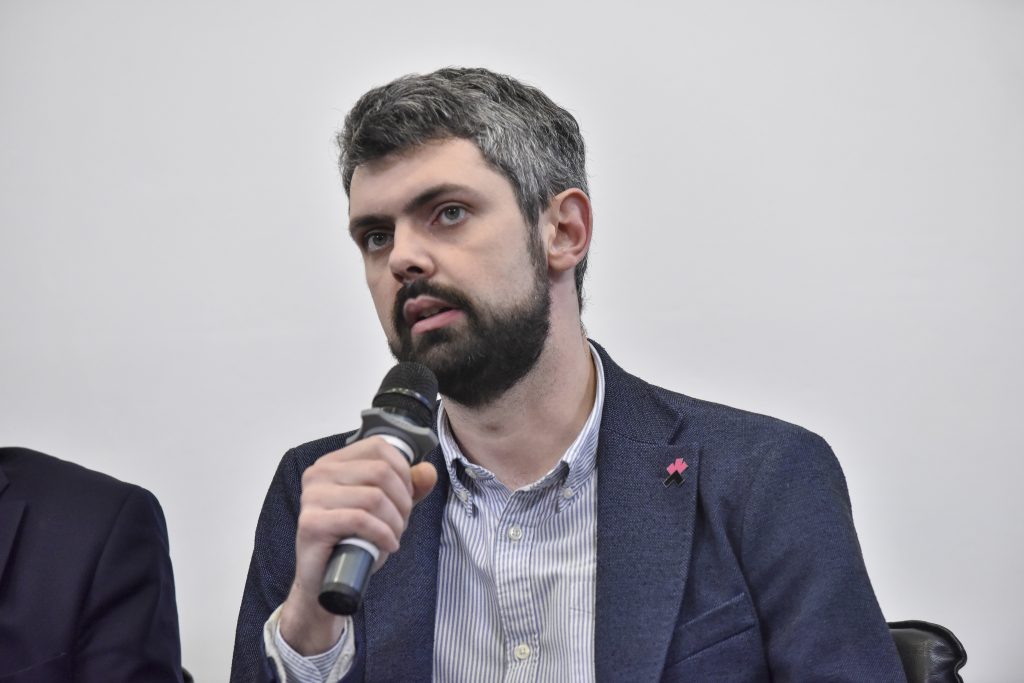
Anton Drobovych, Head of the Ukrainian Institute of National Memory:
“Obviously, the most important thing for the Ukrainians right now is the security challenge – we have an external enemy. But in parallel with this consolidating factor, we must pay attention to education, explaining the logic of state-building, finding common values. We see from the results of opinion polls that not all Ukrainians understand the importance of participating in the political process, paying taxes, although these are key things for shaping a civic nation.
Regarding the rhetoric of the authorities: if we want to see the dividing messages, if we are ready to accept them – we will see them there. Political competition in this matter does not always help us hear and understand the position of another. Let’s not forget that 100 years ago our inability to understand each other led to the loss of statehood. “
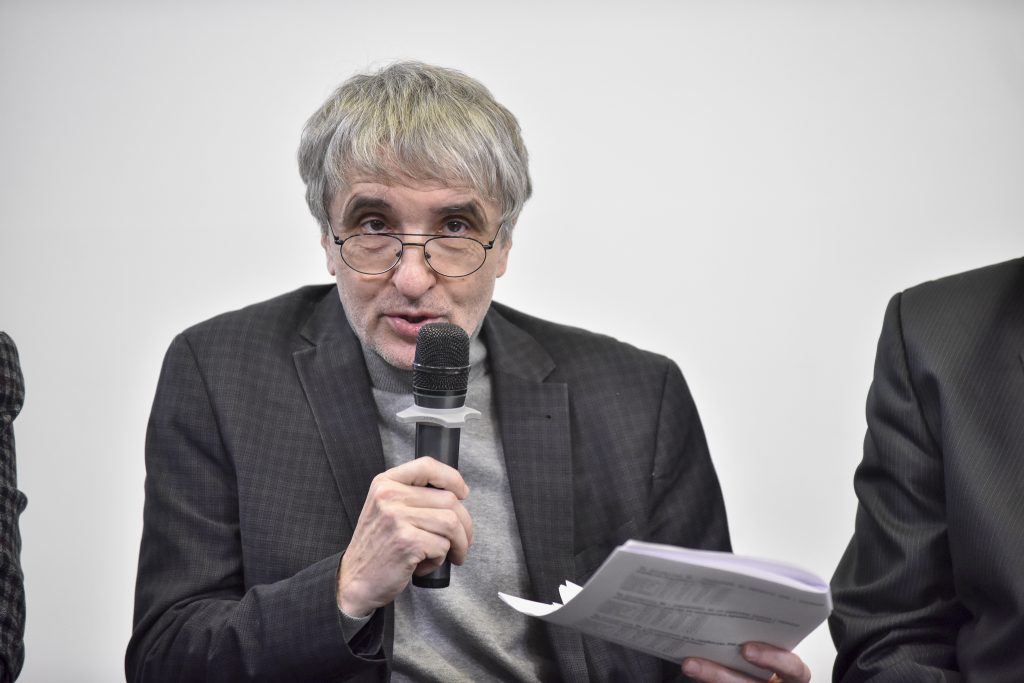
Volodymyr Kulyk, Principal Research Fellow, Institute of Political and Ethnic Studies, NAS of Ukraine:
“By the excellent percentages of public opinion [the poll of the Democratic Initiatives Fund, published on January 21], we see that most Ukrainians agree that the Ukrainian language is an attribute of statehood, its main symbol and value. The key task for the state is now how to combine this symbolic role of the Ukrainian language with the real everyday language practice, which, unfortunately, is poorly asked by sociologists.
The key to language policy in 2019 was the adoption of a law on language. The state always has the option of letting it down on the brakes – without taking care of the proper implementation of the law itself and thus letting citizens know that they too can not care. But 80% of respondents agree that all heads of state and civil servants should speak the official language during working hours. Even in the East, 64% say so, and 71% in the South. Therefore, citizens support not only the symbolic function of the state language but also the communicative one, and this is precisely what should be emphasized and used in the struggle for the implementation of the language law. ”
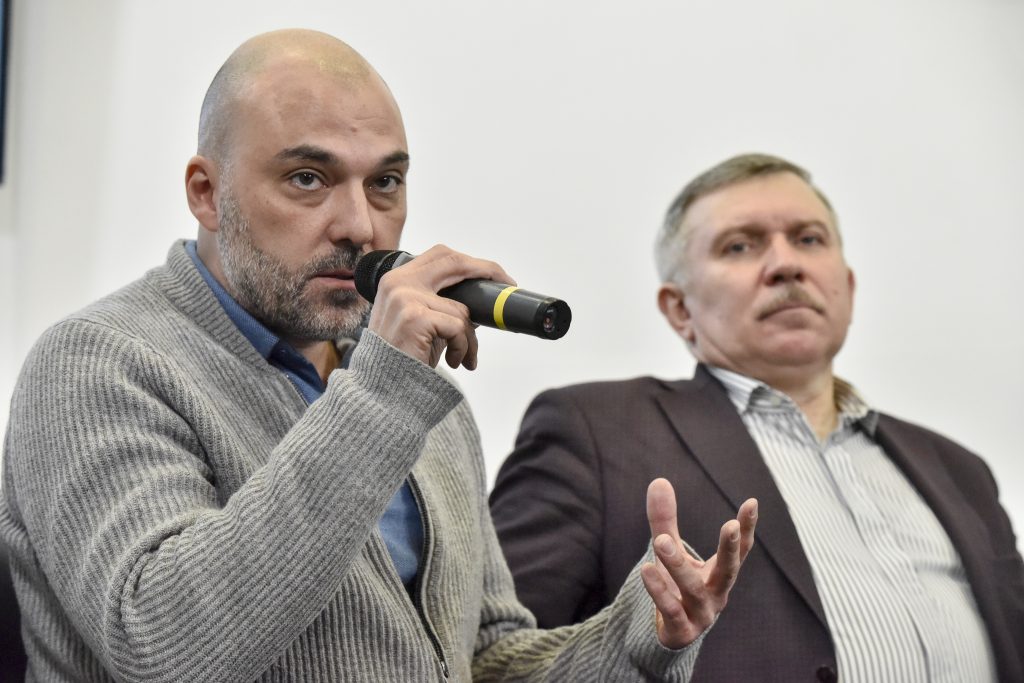
Vakhtang Kebuladze, philosopher, teacher at Kyiv National University. T. Shevchenko and NAUKMA:
“Decommissioning and de-privatization cannot be curtailed – not only in the streets, but also in higher education: this is the key to our future. We need to understand that culture is also about safety. If we do not cleanse our universities, research institutes, and therefore our citizens’ consciousness of Soviet clichés, we should not hope to win this war. This is also closely related to the issue of the Ukrainian language, the questions of who the heroes are for us, who are the criminals, who is the victim and who is the aggressor. “What difference does it make if we want to build a political nation?”
Even our partners in the West do not always understand that Ukraine is a fully bilingual country, that we are fluent in both languages, and it is not a problem of everyday communication, but a tool of manipulation. Language can be a tool of manipulation, but it can also be a tool of consolidation. “
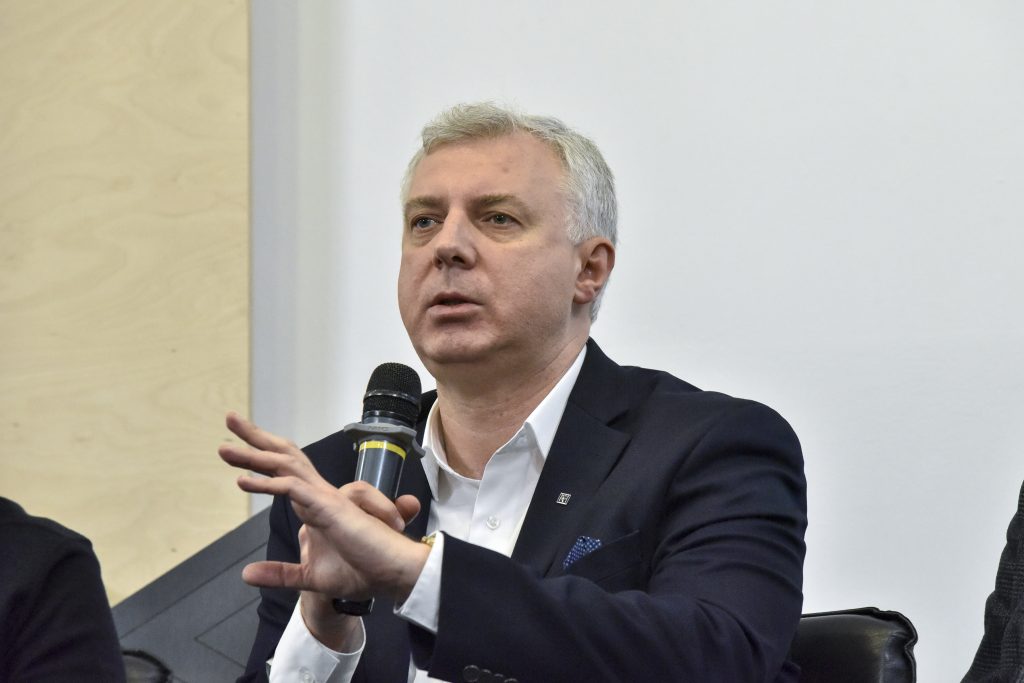
Sergiy Kvit, Head of the National Agency for Quality Assurance in Higher Education, Professor NaUKMA:
“The big problem is that the new government does not state a clear position – what we want. This is of great negative importance both inside and outside Ukraine. If we do not say who we are, what we want, what values we are ready to uphold and what values unite us, who are our friends and who are our enemies – no one will look at us and the face of our country blurs: our partners do not have a clear understanding of who they are dealing with. “
About Challenges 2020 for Ukraine
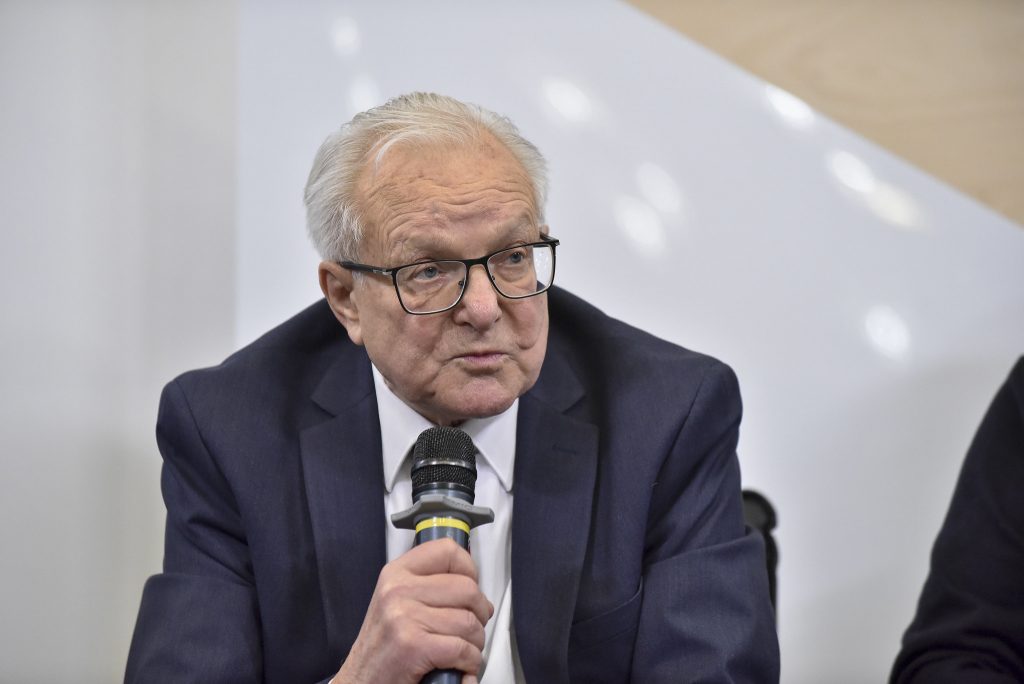
Volodymyr Vasylenko, Auditor of the National Anti-Corruption Bureau of Ukraine, Representative of Ukraine to the UN Human Rights Council in 2006-2009:
“Now there are real threats to the very existence of an independent Ukraine. During his election campaign, President Zelensky lightly promised the Ukrainians a quick end to the war that Ukraine has not started – and therefore cannot stop. Russia is deliberately continuing the war of attrition, forcing Ukraine’s leadership to make new concessions, to a settlement that will legalize Ukraine’s territorial fragmentation and the elimination of its unitary state system.
The government must stop taunting the public with fairy tales about Russia’s desire for peace – because Russia does not need peace but Ukraine’s capitulation. Increasing the combat readiness and combat capability of the Armed Forces should be a top priority. During negotiations in any format, Ukraine’s representatives should demand the withdrawal of all Russian troops from the occupied territories, and the Verkhovna Rada should develop a law not on the special status of the Donbass but on a special legal regime in the occupied territories. “
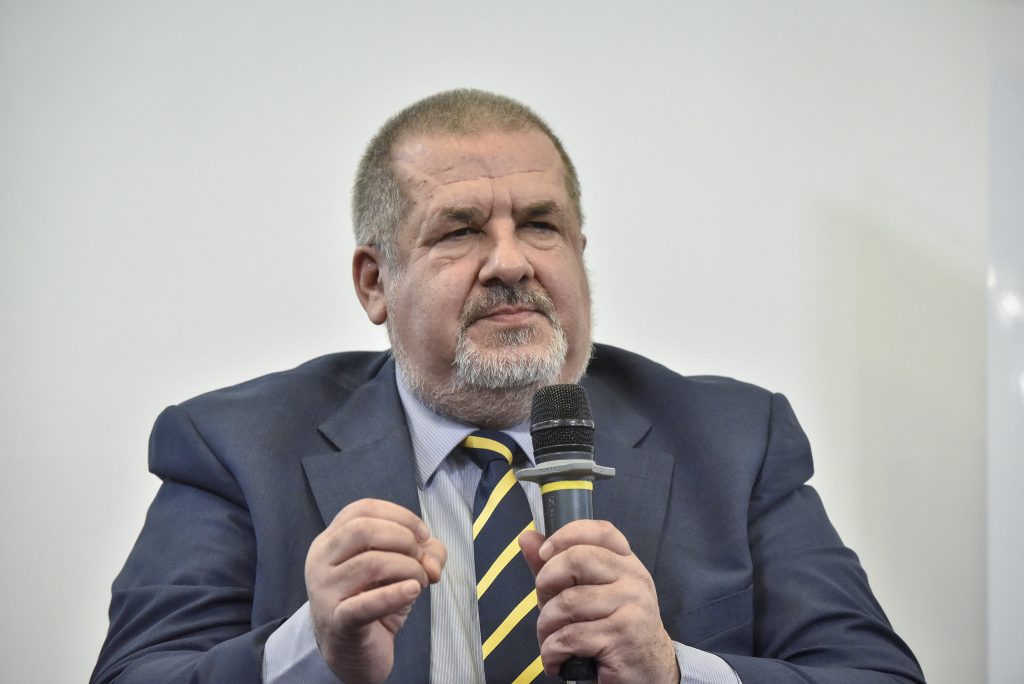
Refat Chubarov, Chairman of the Majlis of the Crimean Tatar People:
“The 6th anniversary of the occupation of Crimea is coming soon. Over the past six years, dozens of documents have been adopted by all international institutions, clearly recognizing that Russia is the aggressor and the Crimea is occupied, with decisive demands on Russia – but none of them has been complied with. Russia is not complying with the international courts’ decision to lift the ban on the Majlis, and on entering the Majlis of the Crimea. Repression continues in Crimea, Crimean Tatars squeeze out of peninsula.
We must mobilize and push international institutions with concrete actions to find mechanisms to implement these decisions in real life. We urge NGOs to develop specific tactical actions that unite all of us domestically and support our partners, and prevent Ukraine’s interests from being transferred internationally. If we do not protect ourselves, no one will protect us. “
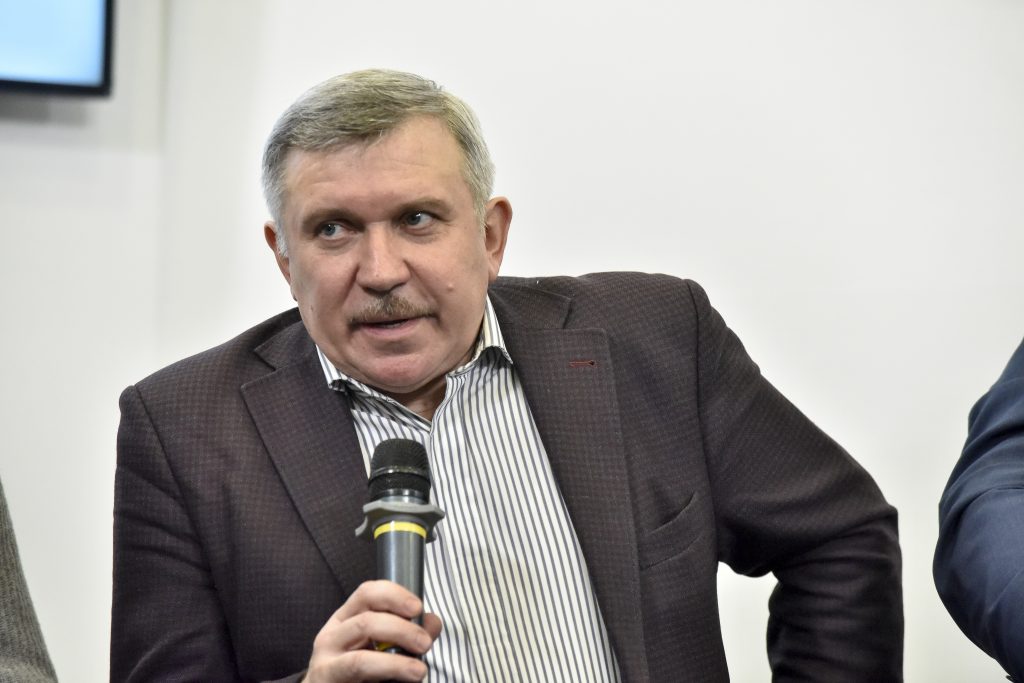
Mikhail Gonchar, President of the XXI Strategy Center:
“Although many say now that the resumption of imports of Russian gas is not in question, the frequency with which it sounds, the tone and some statements of officials that, say, there are no legal restrictions for the resumption of imports, indicate that it may soon become a reality.
There can be no resumption of gas imports from Russia as long as Russian aggression continues. It should be conditioned that negotiations on the resumption of gas trade are possible only when the organizational and technological integrity of Naftogaz Ukraine’s production and pipeline complexes is restored. In other words, the assets seized on the Black Sea shelf, in the Crimea and in the occupied part of the Donbass have been returned to Ukrainian control. The Verkhovna Rada should draft a bill or an amendment to current legislation to prevent the prospect of resuming gas business with Russia “as usual.” Otherwise, this will be the extension of the bridgehead of Russian aggression against Ukraine from within Ukraine. ”
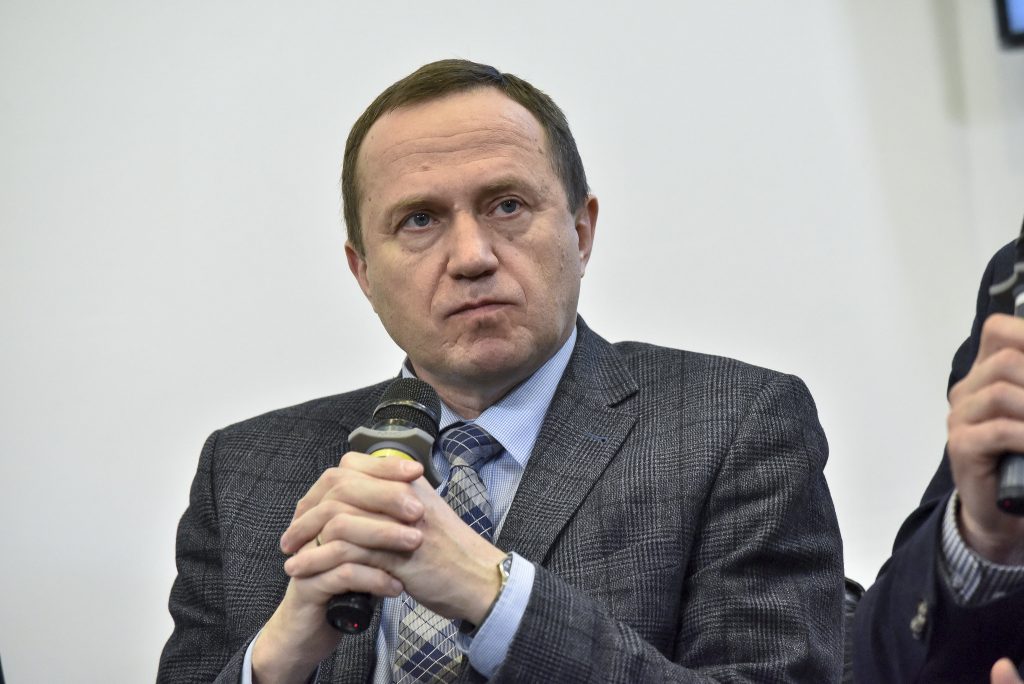
Igor Koliushko, Executive Director of the Center for Political and Legal Reforms:
“The constitution and legislation guarantee the unity of the state. If they do, the country has strong institutions and capacity for development, because it is predictable for both its own citizens and foreign investors. When there is constant chaos and change in the rules of the game – such a state is not trusted. … The greatest damage to our development and our catholicity is the uncertainty in strategic issues. And if the official gives more weight to the results of the poll, than the norm of the Constitution, it means that we lose the foundation. “
One of the main challenges to the rule of law, he says, is ensuring the quality of legislative initiatives, especially those related to amending the Constitution of Ukraine. The work of the Cabinet of Ministers is to capture the attention of all vital issues, not just those chosen as priorities, and the launch of the Directorates in most ministries. The judicial branch has the risk of halving the composition of judges of the Supreme Court, in line with changes to the law on the Judiciary and Status of Judges.
“It will be up to the people involved in the new government to decide who should go. Then, obviously, they will decide that the court does not cope in this composition – and again the new authorities decide who to recruit. According to experts from the Center for Political and Legal Reforms, the rule on reducing the number of judges does not double the Constitution. We are awaiting a decision by the Constitutional Court on this matter. “
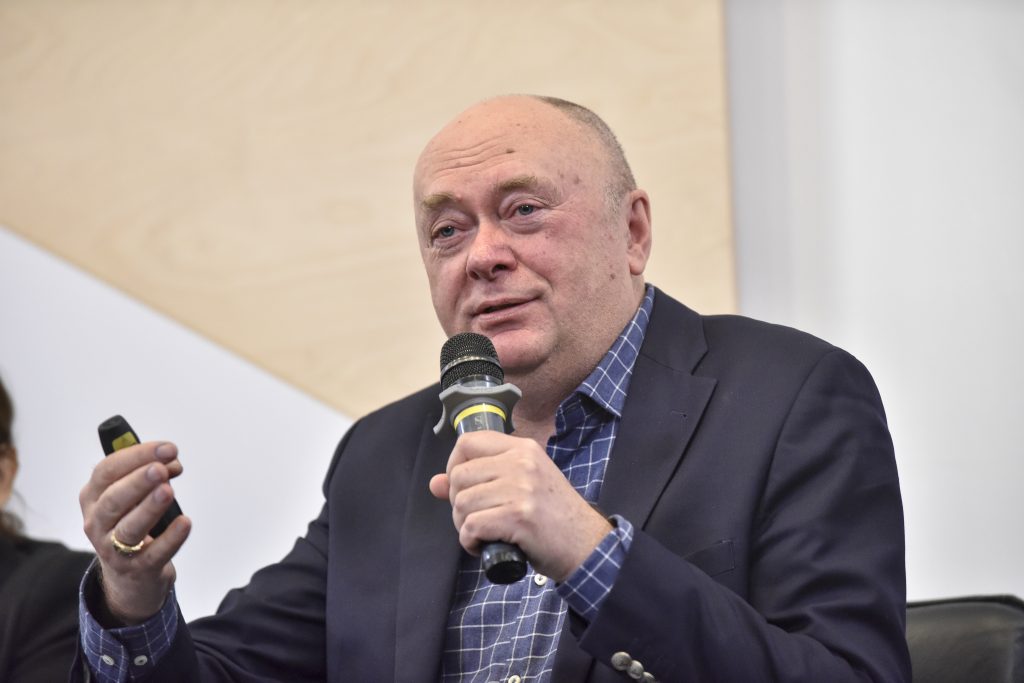
Anatoliy Tkachuk, Director for Science and Development of the Civil Society Institute, NGO:
“It is now very important not to redesign the decentralization model. Because when we say that in order to complete a reform, it is necessary to amend the Constitution – it means that we are jeopardizing the completion of the reform. It is good that these changes have now been withdrawn. In the first reading, a bill was passed that empowers the Cabinet to approve communities, and I hope that by the end of 2020 we will get this Ukrainian “carpet” that has both vertical and horizontal threads: a vertical link between the state level and every small unit and horizontal – between communities, bypassing the level of the region. “
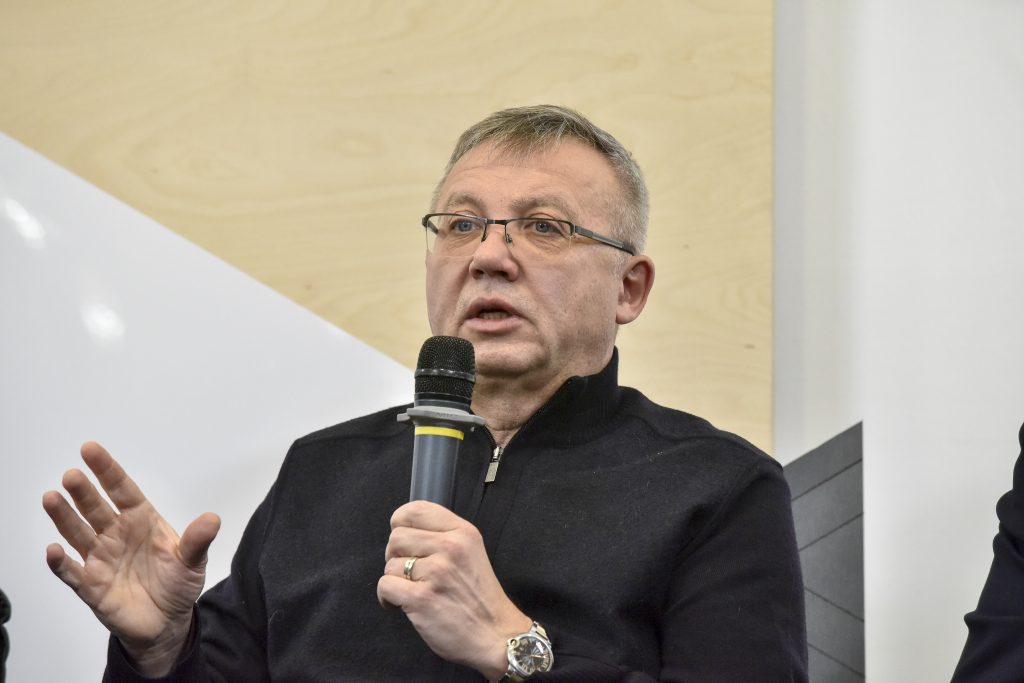
Oleksandr Savchenko, economist, president of the International Institute of Business:
“It is important for civil society criticism of the authorities to be constructive and aimed at pushing the authorities in the right direction – so that we do not join forces with others who are at war with it: Russia, corrupt officials and oligarchs.”

